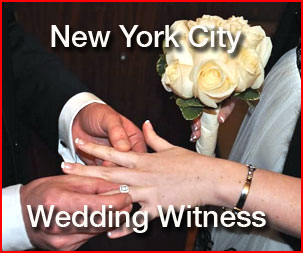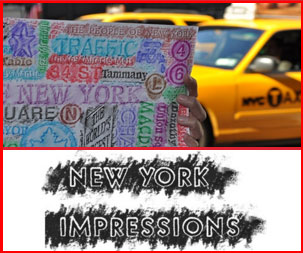Genial TV-host Ronald Reagan became president in 1980, it was “morning again in America,” and the customer relationship took off at full blast. For many younger people, this particular relationship was like a breath of fresh air. It’s not like it had never been there before, but during the feel-good ’60s and the get-your-rock-‘n-rolls-off ’70s there were other, more pressing matters: social engagement, liberation (a word similar to “empowerment” that corporations eventually co-opted), Nirvana, neighborhood gurus, and meaningful encounters (which may have only lasted one night, but heck what nights they were). That was a period with more in it than just cruising for customers, an activity that has led to New Consumerism, a rather egalitarian concept that states that you are what you own and what you can buy. In other words, all consumers are created equal in the number of unimpeded opportunities to keep on consuming and buying. (And if you don’t believe this, you are a revolting, disgusting, and possibly sexually deviant “elitist” who Rush Limbaugh is loathing while simultaneously chowing down a $32 burger at the 21 Club.)
 According to classic Marxian dialectics, the hoary old feel-good hippy-dippy Moms and Dads of the ’60s and ’70s produced a very different set of kids. Voilà Michael J. Fox in Family Ties, in his young Republican button-down, feeling…okay, hard to say what he was feeling. So what if Fox’s Alex P. Keaton had no “consciousness” (screw that, who needs it—you can’t bed a brain anyway)? So what if he had no empathy for the whales or the economically challenged (screw that too—you don’t bed hot girls with empathy)? So what if he was a WASP version of a schlemiel (screw that…oh just screw it!)? For the generation that came after the ’60s, the customer relationship seemed as refreshing as a good hit of coke, and it had no hidden pretext or pretense. One didn’t have to be smart or spiritual to engage in it, and as one cheery young man told me on Ronny’s American morning back in 1985, “The one thing we all have in common is that we’re all consumers.”
According to classic Marxian dialectics, the hoary old feel-good hippy-dippy Moms and Dads of the ’60s and ’70s produced a very different set of kids. Voilà Michael J. Fox in Family Ties, in his young Republican button-down, feeling…okay, hard to say what he was feeling. So what if Fox’s Alex P. Keaton had no “consciousness” (screw that, who needs it—you can’t bed a brain anyway)? So what if he had no empathy for the whales or the economically challenged (screw that too—you don’t bed hot girls with empathy)? So what if he was a WASP version of a schlemiel (screw that…oh just screw it!)? For the generation that came after the ’60s, the customer relationship seemed as refreshing as a good hit of coke, and it had no hidden pretext or pretense. One didn’t have to be smart or spiritual to engage in it, and as one cheery young man told me on Ronny’s American morning back in 1985, “The one thing we all have in common is that we’re all consumers.”
I loved it. Rarely had so many people been relegated to pure schmuckdom by so few. Then hard reality blew in. The market did not “know everything,” and people maxed themselves into credit card slavery. The boom-or-bust real estate cycles promulgated by the reasoning that your house must eventually become your retirement (because there was no other plan, idiot), led to a whole new class of millionaires-next-door and their homeless shadows across the street. We also began to feel suspect of people outside of the now-accepted (demanded!) customer relationship: trade unionists, teachers, doctors, artists, writers, and other professionals. These folks—“elitists” as they were—had been “brainwashed” into believing that their jobs were actually vocations, that there was some other component to their work beyond the paychecks, and that their positions could not be outsourced to Bangladesh.
These people became pure trash to the Republicans and other believers in the customer relationship, even through that now “classic” relationship’s various vicissitudes like the Clinton Spring. During the Clinton years, those damn elitist S.O.B’s started coming out of the woodwork again, the Federal budget got balanced, and the country had a surplus. This was not good for billionaires, and they weren’t about to stand still for very long—not when they could get Joe Plumber (non-union, of course) on their side. Joe loves a good conspiracy, and anything outside the customer relationship quickly became that. In another era, simply being outside the good ol’ C.R. would quickly land you in “Red” territory. (There’s a wonderful bit in Steinbeck’s The Grapes of Wrath when a foreman at a big agri-ranch tells us what a “goddamn Red” is: “A goddamn Red is someone who wants to make 9 cents an hour when I want to pay him 7.”)
You’d think this beloved customer relationship (which at one point had seemed like a refreshing reaction to feudalism itself and gave, in fact, birth to Protestantism) would still be blowing good and sweet now. Except that it isn’t. As things have gone more and more sour, huge numbers of people armed with (we hope) the ballot, want something else. Back in the day, the customer relationship might have been personified by the trilling voice of, say, Franklin Pangborn, a 1930s Hollywood sissy (“Madame, please step over here for your henna rinse and facial massage!”), but now it is now completely computerized, mechanized, and has one grimy hand in your wallet while the other strokes your groin (the original bait-and-switch). Even the Walmart crowd is tired of it. They want “family” again. They yearn for “affinity.” They desire “empathy” and “morality” and even a bit of “chivalry.”
So guess where they are looking for it, and who’s going to give it to them? Can anyone spell “Rick Santorum”?
 Perry Brass’s latest book, King of Angels, is set in 1963 Savannah and explores the genesis of identity and belief. Each month, Perry writes about politics, love, lust, and the human condition in his column “The Wisdom of Desire.” For more on Perry, check out his website HERE.
Perry Brass’s latest book, King of Angels, is set in 1963 Savannah and explores the genesis of identity and belief. Each month, Perry writes about politics, love, lust, and the human condition in his column “The Wisdom of Desire.” For more on Perry, check out his website HERE.










